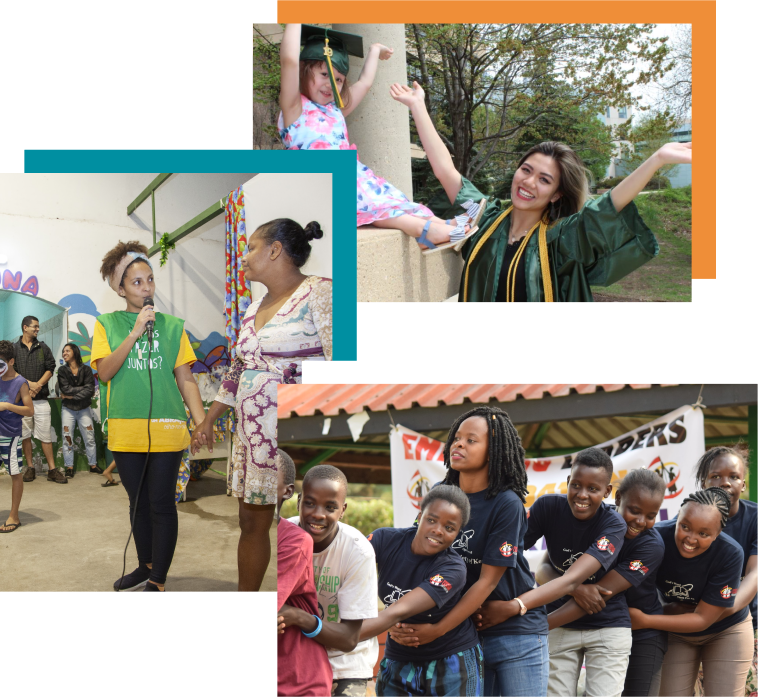
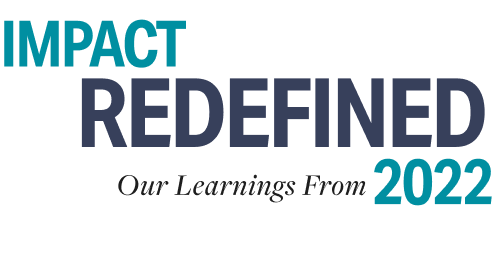


Imaginable Futures works closely alongside partners, communities, learners and their families to explore new approaches to creating deep, sustainable change together and ensure that everyone has the opportunity to reach their fullest potential. This report takes stock of what we have learned in this past year and shines a light on stories from our partners that inspire and inform our work.
In recognition of Imaginable Futures' third anniversary, this report aims to share insight on how our continuous learning journey with partners in Kenya, South Africa, Brazil and the United States has informed our approach to measuring and defining impact in the context of philanthropic investing.
When Imaginable Futures spun out of Omidyar Network in 2020, the great majority of our work was investing in for-profit and nonprofit entrepreneurs who were working on the edge of innovation to create social change. It was always our intention to refresh our strategies as an independent organization, which we did in the context of COVID and increased political polarization, racial tensions and violence across many parts of the world. Given the complexity of the areas in which we work, we used a systems approach to create our strategies.
This process reinforced that a narrower focus on innovation, scale and entrepreneurship — while certainly impactful — was not sufficient for the deeper system change we aspire to achieve. As we’ve shifted from a primarily venture-based social impact model to a systems change model, much has changed, from our approaches to our tools (e.g., funding community-driven research and grassroots advocacy) to our processes to our culture and more. Importantly, this has led us to think about and define “impact” differently.
We know that quantitative data is important for tracking progress and identifying gaps, and we also know that not everything that matters can be measured quantitatively. Part of striving to create healthier, more equitable systems is pushing ourselves to consider more ways of knowing as key indicators of change, and it is critical that we value stories, personal experiences and other qualitative data that help us understand how systems are changing.
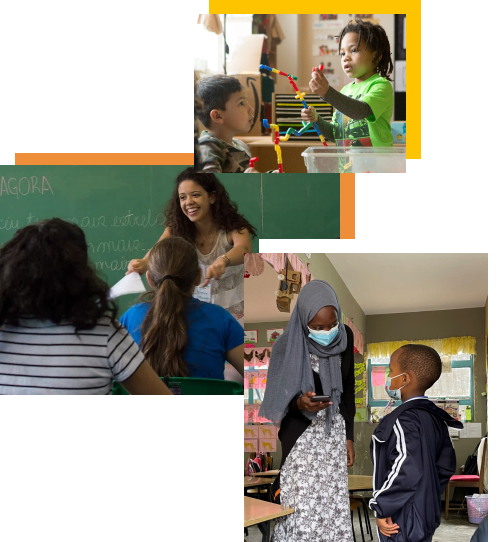 Photo by Allison Shelley /
Photo by Allison Shelley /To sustain truly transformative change, like the kind that learners deserve, communities must have a say in defining what impact and success really mean for them. And by listening to and learning alongside our partners, we've been able to more effectively sense change in the system, allowing us to be more responsive to the needs of the systems we work within.
While we can learn a lot in a year, systems change is a long-term process. It takes time for shifts in the system to emerge and take shape. So while this report shines a light on learnings that have emerged from Imaginable Futures' work alongside partners over the course of the year, the work doesn't stop here. We are constantly learning, evolving and growing as we aim to ensure that all learners, families and communities can thrive in a changing and interdependent world.
Working toward change within a system requires flexibility, adaptability and a commitment to the long-term work of learning and evolving in a dynamic and ever-changing space.
We at Imaginable Futures have discovered how crucial it is to approach our work with the curiosity, patience and humility — and vulnerability — required for systems change. This is not easy, and it takes ongoing practice. And it requires us to step aside and listen to the stories, insights and experiences of those who are closest to the issues. If we rely solely on quantifiable facts and scientific data — focusing too closely on the rational, the pragmatic and the analytical — then other important insights get lost. Stories that connect us with each other, our shared humanity and the planet convey something to us that is equally, if not more, insightful. To this end, we've made efforts to slow down and listen deeply to others and ourselves in order to identify what matters most.
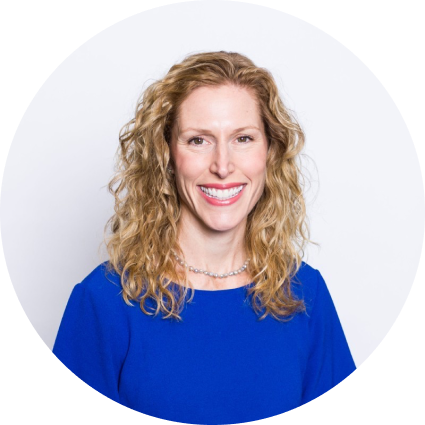
Internally, we've woven processes into our daily work that support systems-thinking practices, including asking some of our team members to take on the role of learning facilitators — people who are tasked with sharing and cross-pollinating insights across teams. Within our practice, we've focused on developing trusting relationships with our partners and moved towards a grantmaking process that shifts decision-making closer to those most proximate to the challenges we work to address. This includes ensuring that the communities we work with are front and center in both designing solutions and in measuring success.
Our work is rooted in the understanding that diverse perspectives and different forms of expertise are critical to systems change. We hope that the stories and perspectives shared within this report spark ideas for how you or the organizations you work with approach strategies around measuring impact. We also invite you to share how you are thinking about and defining impact with us as well, so that we can continue to learn and grow together.
Warmly,


Further defining and strengthening our racial equity work in education has led us to change how we show up for ourselves and our partners. By engaging with our partners in Brazil — especially those at the forefront of the Black- and Indigenous-led movements — from a place of collaboration, openness, humility and deep listening, we've confronted our own internalized biases and privileges, and have gathered critical insights into how philanthropy can better support racial equity at the systemic level. In the coming year, we are excited to continue investing in anti-racist organizations working to create equitable environments where all learners feel safe, develop agency and can reach their full potential.
Structural racism permeates the education system in Brazil, resulting in drastically unequal learning outcomes for Black and Indigenous students. The racism they encounter daily affects self-esteem, sense of belonging and academic performance. In addition, these same groups are underrepresented in positions of power, and Black- and Indigenous-led organizations are critically underfunded compared with their white-led counterparts.
In building meaningful partnerships with anti-racist changemakers, we've seen firsthand the importance of letting go of traditional “best funding practices,” and instead, have reimagined what the role of philanthropy could look like. Across the funding landscape, we're seeing growing awareness of, and commitment to, racial equity work — including a greater understanding that wanting health in the “system” requires attention to the well-being of people, given how structural inequalities produce exhaustion, stress, violence and vulnerability at the systemic level. Our partners are working to advance racial equity in education with a conscious intention.
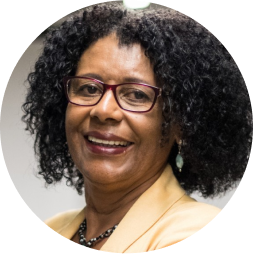
“It is plurality that expands all of society's horizons.”
In working alongside our partners, we've learned the importance of examining where and when our strategies may be too academic or top-down and shifting our practice — both internally and externally. This has meant taking a stronger public stance in support of basic human rights and anti-racist education, challenging who makes decisions on what to prioritize and encouraging everyone to use their voice.
Participatory designs are often embedded in Black and Indigenous communities' worldviews and cultures. Learning from their example, we have shifted our practice to be more participatory, and in doing so, we have experienced stronger relationship-building with our partners and new, collective insights have been elevated.
This manifested in our work in fighting for the renewal of the Quota Law — Brazil's decade-old affirmative action law that has reserved half of the seats in Brazil's public, high quality and free higher education for public school students according to Brazil's racial distribution, ensuring access for Black, Indigenous and low-income Brazilians — to stay in effect. We heard from our Black and Indigenous partners that this was one of the most important actions for us to take.
We see our role as one of supporting communities to fully own and advance their vision. It is critical to connect the social movements with the change communities call for in the education system. As we have attempted to be a bridge between social movements and the social sector and philanthropy, we've witnessed how schools are transformative spaces when led by courageous and democratic community leaders who weave the energy of the local community into their work.
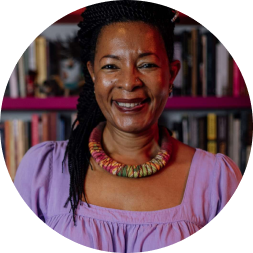
“The true miracle in the face of adversity happens when people are together to find a way out.”
Despite the emerging possibilities of using technology to advance learning, many barriers continue to prevent edtech solutions offered by entrepreneurs from actually reaching students in Brazil, including limited bandwidth infrastructure and internet access, wide learning gaps among students in the same classroom, staff shortages and lack of digital literacy across decision-makers in schools and municipalities – many of which have been exacerbated by the pandemic.
Over time, we’ve noticed that, due to the structural barriers above, few entrepreneurs are able to adequately serve the public sector — and even fewer have a focus on racial equity. Many solutions are still solely focused on literacy and numeracy, and are not racially or culturally sensitive. Given that not many entrepreneurs are aiming to create technology for those learners that need the most support, we have shifted to focus on partnering with organizations that are explicitly interested in finding solutions for these learners.
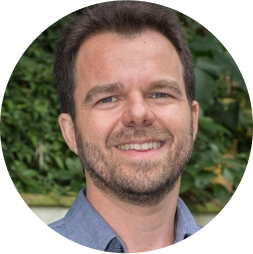
“In an equitable learning environment, each person has something valuable to share and we know we have something to learn from everyone.”
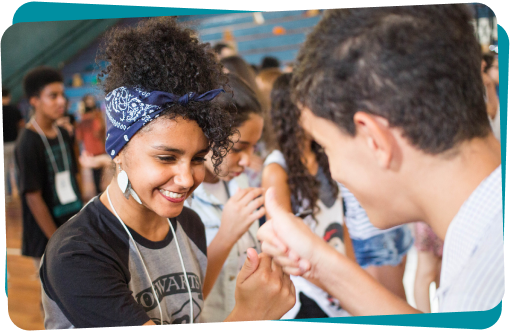

As we continue our two-generation approach in the US – focusing on both early childhood education and postsecondary success of parents – we have deepened our ties to those closest to the work, which we think has made our work more effective. From continuing to intentionally integrate justice, equity, diversity and inclusion (JEDI) into our investment approaches and supporting movements geared toward policy change to exploring different methods of authentic storytelling, we are stepping into this year inspired to continue deepening our relationships and to help others do the same.
While our systems are increasingly focusing on and elevating JEDI, both internally and externally, concrete progress has been slower than the pace of transformative change we need. Building equitable practices within organizations and systems takes time, resources and energy. Continued progress will require leaders – including those in philanthropy and organizations at the forefront of change – to become more comfortable with giving up control to those most proximate to the issues, adapting to shifting power dynamics, increasing funding to proximate-led organizations and moving beyond tokenism towards collectivism.
As an organization, we've taken steps to navigate these shifts, understand our own role in upholding existing racist power structures, listen deeply to the communities directly impacted and make adjustments to our approach. When embraced, we've seen JEDI's positive effects within our own work and the work of partners:
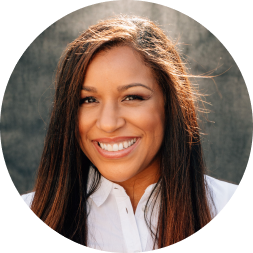
“I never envisioned myself as a CEO or as someone who was on the front lines really creating that kind of change. It really took me a little while to embrace the idea that, yes, it is me. I had this lived experience, I had this vision for what I felt needed to exist in the world.”
The pandemic created a new opening for positive change in the system, catalyzing public support, broader awareness and momentum for significant policy change on both child care and student parents.
While additional federal public investments in our care infrastructure are still needed to ensure all learners can thrive, we're seeing tangible impact for families happening today through changes at the state and local levels, spurred in part by the work of our partners. Expressing optimism about the future, advocates and organizers are noting that the child care movement is the strongest it has ever been, recently celebrating a historic win on the ballot in New Mexico, where voters passed a measure to make early care and education a universal right. There is also swelling interest in state-level action on student parents, with California recently passing AB 2881, granting priority registration to student parents and helping to lay the groundwork for statewide data collection of student parents. To continue this momentum toward policy change, our team is continuing to focus on:
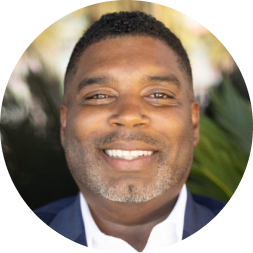
“California is starting to recognize that this often-ignored student population has unique needs and unique strengths. When we create policy, let's remember that for so many Californians, the long journey to a degree is fueled by the love and support of their parents and driven by dreams for their children.”
Within philanthropy, it's become more common to embrace storytelling and lived experiences to inform and shape systems change work. Education funders use storytelling to help illustrate how learners are much more than just learners, and to understand how they and their families lead complex, dynamic lives that intersect with other issues — such as climate, child care, the economy and more.
Today, the forms of storytelling are just as diverse as the stories that compel us to action, presenting more opportunities for improving public awareness and perception on the issues that we focus on. We are increasingly seeing stories about child care and student parents appearing in multiple forms of media, from traditional journalism and scripted television to podcasts and other emerging formats.
Embracing these many modes of storytelling creates more entry points for different audiences to engage with these issues, deepening our understanding on a human level and creating the groundwork for building public will for change on a broad scale.
As each of these stories works to fill out broader narratives around care, parenting and learning, we're excited to continue exploring and supporting new ways to connect authentic storytelling to successful calls for change.
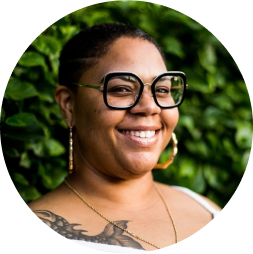
“We are very tenacious. We're resourceful. We are persistent... We know how to take no and turn it into yes. I think we have our children watching us for an example, so we have that to live up to.”
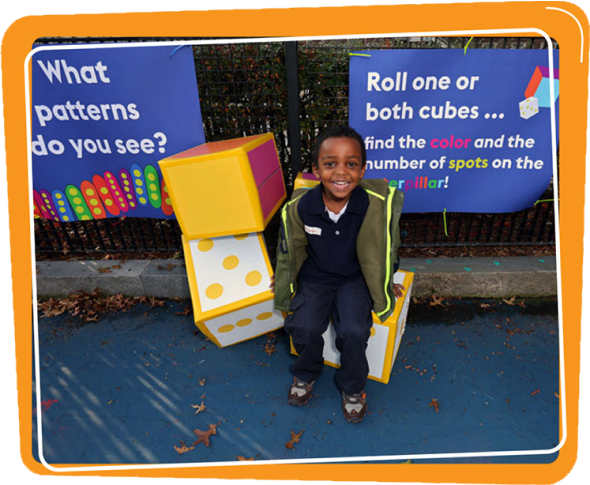

Our work in Africa is guided by a commitment to actively listening, learning, collaborating and co-creating with young people, teachers, parents, local leaders and policymakers. Over the last year, we have experimented with new ideas and approaches that bring us closer to our partners’ work and their communities. Alongside our partners, we support learning approaches that provide youth with the resources, agency and skills they need to thrive. Committed to our JEDI values, we continue to learn and adopt new practices that enable us to be both bolder in our actions and more humble in our decision-making.
By 2050, 50% of the world's working population will be in Africa. However, there aren't enough jobs for the many young people in Sub-Saharan Africa seeking employment, and youth are often excluded from the workforce or find it difficult to access the resources needed and opportunities to get involved. Many struggle to meet basic needs, making it hard for them to focus on longer-term goals that might positively impact their future. Training programs that do not take these needs into account have little relevance for this population. In response to this reality, we've shifted our strategic focus to better account for and emphasize the connections between learning and dignified livelihoods.
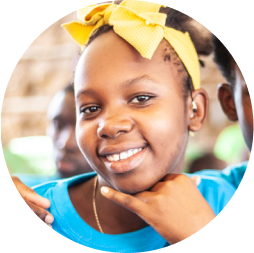
“My connections in my community is my wealth.”
Communities can help create more equitable practices and systems capable of nurturing personal relationships and building stronger local institutions. Our community partners engage and empower communities to develop their agency and design their own solutions, while shifting narratives and changing cultural norms that impact African youth, young girls and women.
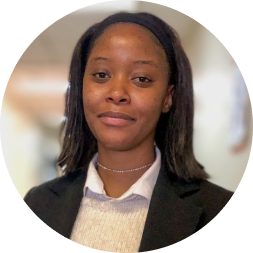
“As young people, we have potential. We know we can achieve our life's purpose when given the right support and environment to thrive.”
We bring key actors in the system together to spark collaboration and cross-pollinate learnings, insights and ideas. This year, we connected monthly with our five Youth Advisory Board (YAB) members and engaged in system-sensing practices with our YAB and other proximate partners to help refine and inform our strategy in Africa. We also focused on larger collaborations to connect the research and funding communities with the goal of elevating locally led African research as a way for policy decisions and solutions to be based on local context.
African-led research accounts for only 3% of global research output, and the majority of funding for research about Africa goes to research institutions that are not led by African researchers or based in Africa. Through closer collaboration, philanthropic organizations and policymakers can play a role in increasing momentum and funding for local research.
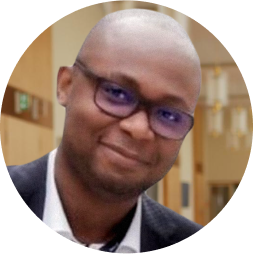
“Relevance of the research matters. We need to have a research agenda in our public institutions informed by issues on the ground. Sadly, researchers publish lots of research that doesn't address local community issues.”
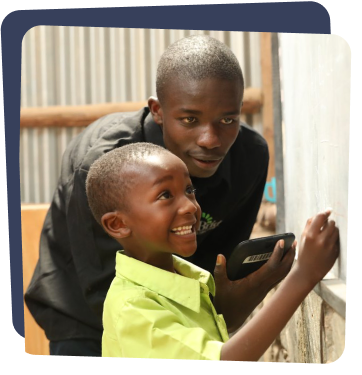
As we work to co-create a future where all learners, families and communities can thrive, we are perpetually inspired by the stories, wisdom and voices of our partners.
From listening and dreaming together with our partners and community about #TheFutureWeImagine to launching our new Open Door portal to deepening our relationships with partners by listening to feedback, we've continued to explore different themes, insights and steps for how we can collaboratively create transformative solutions for learners.
These conversations are ongoing, but they have already transformed how we're thinking about our work to create more nurturing and equitable systems for learners. It's also transformed how we think about the role of philanthropy. While we've always been conscious of the power dynamics within philanthropy, we know there is more that we can do to be even more inclusive and continue to shift and share power. We're excited to further innovate our processes and methods of collaboration as we move into the future.
As we build on years of investing in remarkable changemakers and organizations creating scalable, sustainable solutions that are having real impact on lives and systems, we are also thinking about how we can apply our learnings and insights to other ways of work. Looking ahead, this includes community, evidence generation, policy and advocacy work.
We know that systems change is a long process that requires patience and resilience, and that the emerging patterns and shifts we've started to observe will only continue to change over time. But we also know that there is joy in seeing, experiencing and adapting to those transformations and shifts as they occur.
With that spirit in mind, we hope that this report has provided useful insights into our work, and that it can help inform new ways to define impact. We are excited to take the next steps in this journey together.